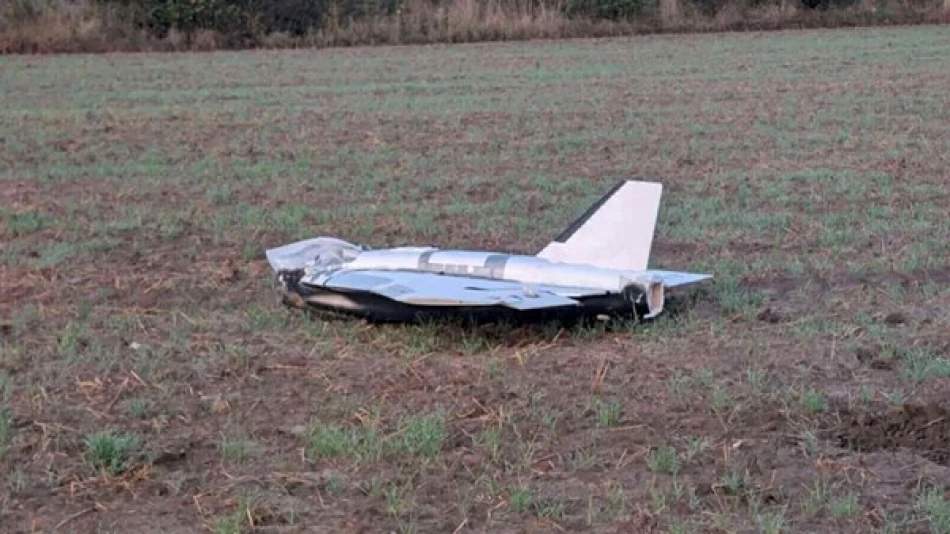
United Nations Security Council Convenes After Breach of Polish Airspace by Drones
Poland Forces UN Security Council Emergency Session After Alleged Russian Drone Incursion
Poland has successfully petitioned the UN Security Council to convene an emergency session Friday following what Warsaw calls a deliberate violation of its airspace by approximately 20 drones. The incident, which occurred Tuesday night into Wednesday, marks a significant escalation in NATO's confrontation with Russia and could reshape how the alliance responds to hybrid warfare tactics along its eastern frontier.
The Airspace Violation That Shook NATO
The drone incursion has sent shockwaves through Poland's political establishment, with 19 unmanned aircraft penetrating Polish airspace without causing casualties but damaging a house and vehicle in the country's eastern region. While Moscow denies any intentional violation, Polish Foreign Minister Radosław Sikorski has framed the incident as an "unprecedented attack" on a nation that holds membership in the UN, European Union, and NATO simultaneously.
Poland's response has been swift and decisive. The country immediately restricted air navigation along its eastern borders with Belarus and Ukraine, implementing flight bans up to three kilometers altitude through December 9th. Crucially, these restrictions exempt commercial aviation operating at higher altitudes, suggesting Poland aims to project strength without disrupting economic activity.
Testing NATO's Article 5 Resolve
Sikorski's characterization of the drone breach as a test "not just of Poland but of NATO as a whole" carries profound implications for the alliance's collective defense framework. This incident represents a gray-zone operation that falls short of traditional military aggression but clearly violates sovereign airspace—precisely the type of hybrid warfare that has challenged NATO's response protocols since Russia's 2014 annexation of Crimea.
The timing appears calculated. With Ukraine's counteroffensive stalled and Western military aid under political pressure, Russia may be probing NATO's willingness to escalate over seemingly minor provocations. Poland's demand for enhanced EU and NATO military capabilities on its territory suggests Warsaw views this as the beginning, not the end, of such incidents.
Diplomatic Chess Moves at the UN
The emergency Security Council session, scheduled for 3:00 PM EST Friday under South Korea's rotating presidency, represents Poland's attempt to internationalize what could otherwise be dismissed as a border incident. By elevating the matter to the UN's highest body, Warsaw forces Russia to defend its actions on a global stage while potentially building consensus for stronger defensive measures.
This diplomatic strategy mirrors Ukraine's successful efforts to maintain international focus on Russian aggression through multilateral forums. However, Russia's Security Council veto power limits the session's practical outcomes, making it primarily a platform for public condemnation rather than binding action.
Implications for European Defense Strategy
The incident accelerates ongoing debates about European strategic autonomy and NATO's eastern flank defense. Poland's call for enhanced military capabilities suggests Warsaw may push for permanent NATO deployments or advanced air defense systems similar to those protecting the Baltics.
For European defense markets, this crisis could catalyze investment in anti-drone technologies and integrated air defense systems. The incident demonstrates how relatively inexpensive unmanned systems can create disproportionate political and military responses, potentially reshaping procurement priorities across NATO member states.
More broadly, the drone incursion tests whether NATO can develop coherent responses to hybrid threats that blur traditional distinctions between peace and war—a challenge that will likely define European security for the remainder of this decade.
Most Viewed News

 Layla Al Mansoori
Layla Al Mansoori






